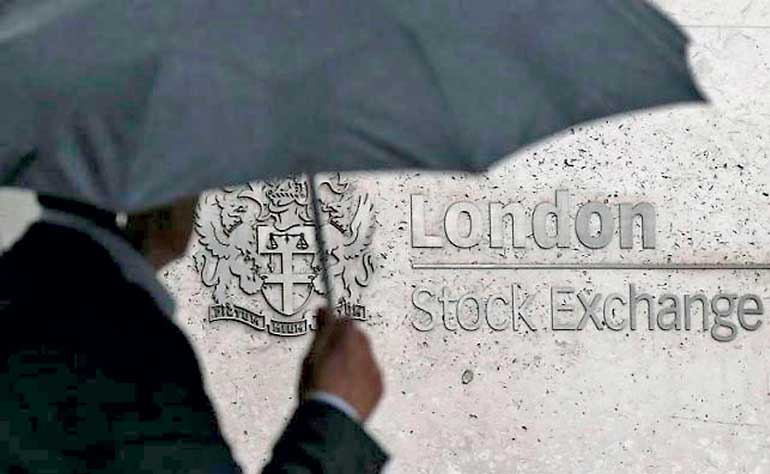Tuesday Feb 17, 2026
Tuesday Feb 17, 2026
Wednesday, 16 September 2015 00:00 - - {{hitsCtrl.values.hits}}
 A man shelters under an umbrella as he walks past the London Stock Exchange in London, Britain - REUTERS
A man shelters under an umbrella as he walks past the London Stock Exchange in London, Britain - REUTERS
Concerns over China kept financial markets on edge on Tuesday, with an underwhelming reaction to recent data and Beijing’s efforts at corporate reform helping push European and Asian stocks lower.
Europe’s main markets had inched higher in early trade, with investors avoiding firmer bets ahead of the first meeting of the US Federal Reserve in years at which a possible rise in interest rates has been a live issue.
But worries about the impact of any Fed hike on dollar borrowers across the developing world, and its effect on growth, continued to dominate, with Shanghai stocks falling another 3.5%.SSEC and oil at just $ 46 a barrel.
“It’s all about caution today,” said Andy Sullivan, a portfolio manager with Swiss investment firm GL Financial Group. “There is concern about the Fed, plus the China data continuing to be weak.”
While Tokyo inched higher, MSCI’s broadest index of Asia-Pacific shares outside Japan erased early gains to fall 0.7%. An hour after opening, the main indices in Frankfurt, London and Paris were up to 1% lower.
If concerns around emerging economies have dominated the past month, there are still reasons to be more bullish on a number of developed markets.
Sullivan said he was positive on European equities, which will draw support from the European Central Bank’s campaign of quantitative easing over the next year and look undervalued compared to their US peers.
In Britain, inflation data gave another signal of an economy inching back to health, supporting expectations the Bank of England will follow the Federal Reserve in raising interest rates next year. Sterling rose around a quarter of a percent.
The Australian dollar, often a proxy for China on major currency markets, was a touch lower, while iron ore and copper prices - also often guided by Chinese demand - fell by 0.5-1.0%.
A Barclays survey showed growth in China and other emerging markets was now the top concern for almost half of investors worldwide over the next year. Less than 10% saw Chinese assets as cheap, suggesting the sell-off has further to go.